From CEO: About values
Hi! I’m Teemu, the freshly appointed CEO of Fingersoft – the company behind games such as Hill Climb Racing – for the second time around. I figured it might be interesting to put some of my thinking into writing to help me clear my thoughts and thus I’m now writing a blog. Maybe this will stir up some amazing conversations down the line.
They say publishing something is a great way to do internal communication as well, so let’s see how that goes. As we like to be quite open about our learnings, you can well expect to see something similar from other people at Fingersoft as well. In the meantime, I hope you enjoy this one!
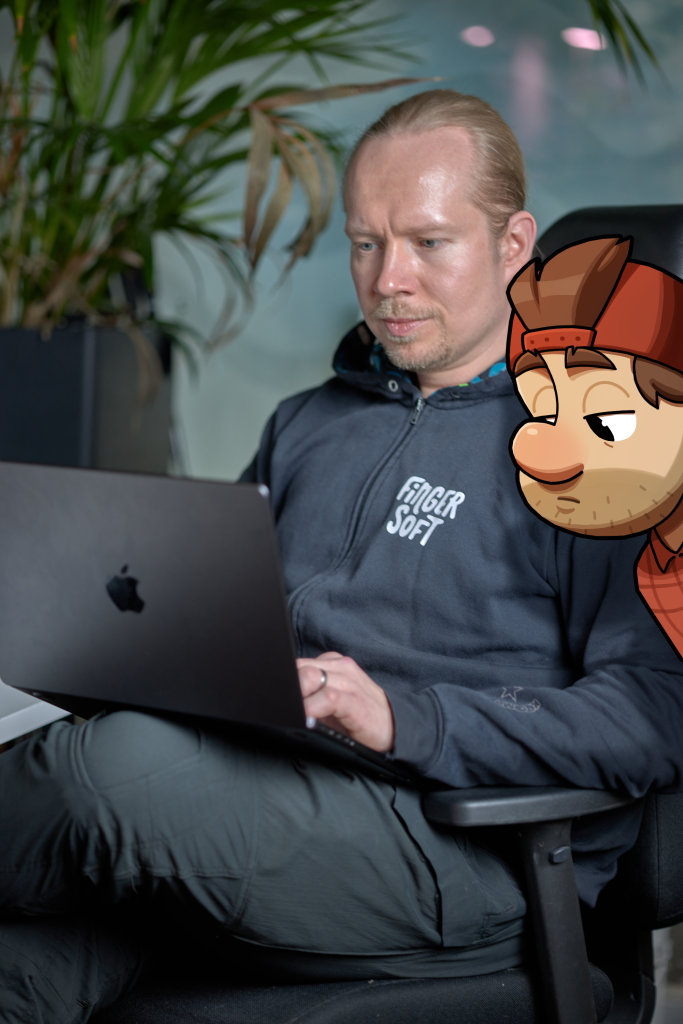
I still remember as clear as day when we were negotiating our first investment for the first startup I was part of. We had a number of excel sheets projecting massive hockey stick revenue curves. Then one of the angel investors popped a question that has stuck with me ever since: what are your values? We were baffled. Didn’t we just show you all these numbers, and a valuation based on them? No – he said. Your VALUES. What is your company standing for, what are the principles you are building all of this on – is it about having fun, creating something new, or maybe maximizing profits?
We did close the round, but eventually that company went under. But the idea still lingered in the back of my head. We didn’t fail because of our values. Maybe we didn’t even fail because they weren’t clearly defined. But maybe they could have been of some use.
When we started Fingersoft, our founder Toni presented our values, roughly put: when you make players happy with happy employees, money should follow. When I became the CEO (for the first time), we kept those values to our heart, and they reminded us of the main thing – we’re here for our players, and we need to enjoy our work. Over time, however, we wanted to dig deeper.
I think it was some time in 2019 or 2020 after I had had a major burnout and it was my turn to step down as CEO, that we started an internal project to elaborate on those three values. There was a strong sense of company identity back then and a set of values and ways of working were deeply embedded in us (for better or worse). So it was quite natural to survey our employees about what they felt strongly about in our culture. And we got ourselves a new set of values, and it was great. It was amazing to see how this company was continuing to live according to our values even with changes in leadership.
Somewhere along the way, our board member and a respected industry blogger Joakim Achrén introduced to us the book Beyond Entrepreneurship 2.0 (BE 2.0) by Jim Collins and Bill Lazier. I was blown away, since this book not only highlighted the importance of core values and beliefs in a company, but also introduced a framework and a well defined vocabulary for building and defining company vision. The book defines core values and beliefs as something inviolate and that never change. Now, however, we are still introducing an updated set of values. Why on earth would we do that? Are we going through an identity crisis?
I think the answer to the latter is no. However we as a company are going through some kind of puberty, which is kind of ironic, considering that we started off as a “punk band” or “cognac connoisseurs in a frat house”, and then moved on to look like a proper business. We now needed to somehow find the best of these two worlds, and to push ourselves even further. And by us I don’t mean our leadership or the board, but everyone in the company. The project to review our values might have started from up top, but we also wanted to once again include our employees in the process. And what did we find? We were on the very same page.
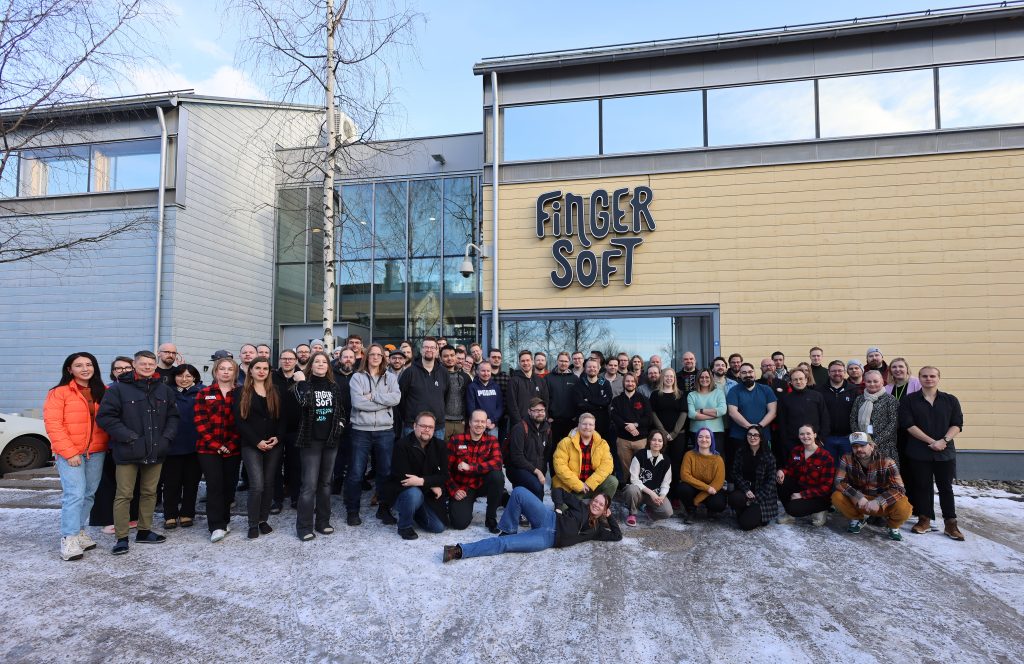
There were lots of things we wanted to include in the way we declare and communicate our values, but at the same time we needed to have something memorable, which we didn’t really hit with the previous ones. So we ended up with the following ones:
1. Own It and Make It Happen
2. Dare to Experiment and Grow
3. Keep It Real and Respectful
4. Play and Win as One Team
Let’s have a brief look at how we see each.
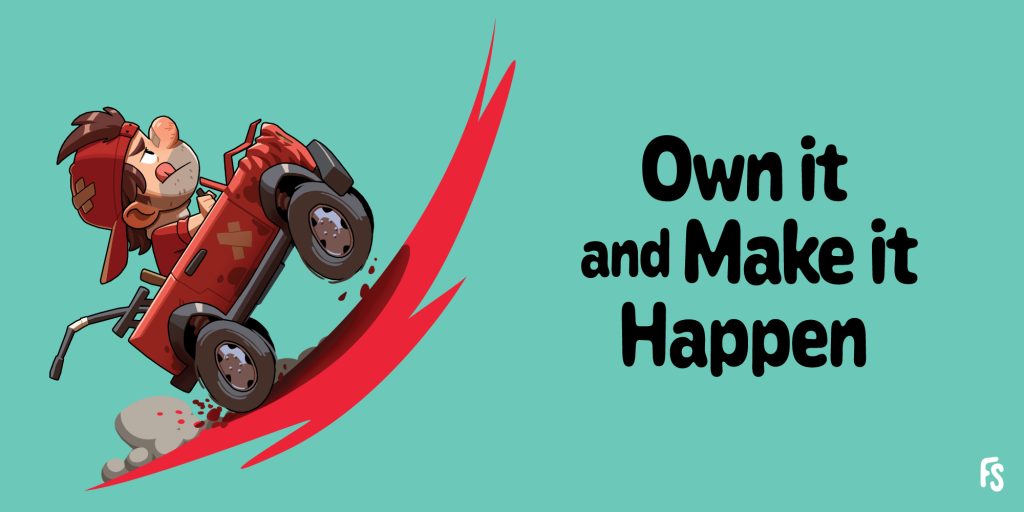
Ever since the founding of Fingersoft, we’ve believed that the best results come from employees who want to assume responsibility for what they do. “Someone else” doesn’t work in our company, and you cannot expect things that suck to be just magically fixed. If you don’t do something about it, no-one will, to put it bluntly. When we are adamant about what we want to achieve, our passion will show through in our results – be it our games, or any other activity.
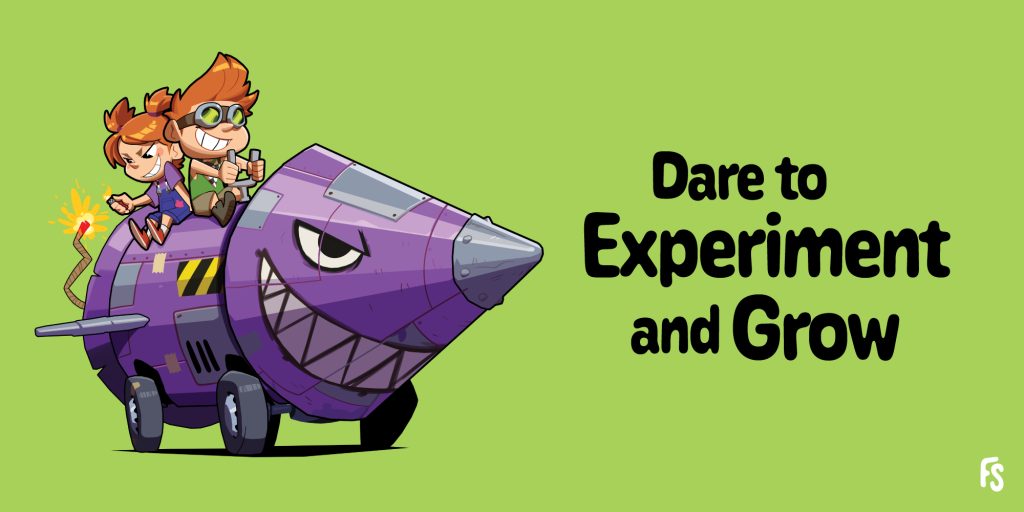
I remember launching Hill Climb Racing 2 back in 2016 was an exciting period for us. We dominated the download charts for quite some time and it took a certain plumber dashing after a princess to dethrone us. We were still hitting the mark, but the success came with an insidious price. We now had a massive userbase relying on us to keep our servers running and user accounts intact. A single mistake could ruin the game for them for days. Our QA courageously took the challenge, and we’ve been building a process that we can truly be proud of. We’ve been creating amazing content for the game ever since. But unfortunately that alone is not enough for the long haul.
Our games are at their best a hobby for our players for decades, and therefore it is our responsibility to make sure that the hobby stays fresh. We cannot just rely on what we know will work, but instead we need to boldly strive for something new. Not everything is going to be a hit, but at least we keep bringing value by coming up with exciting new ways to enjoy our games. We will grow, not wither.
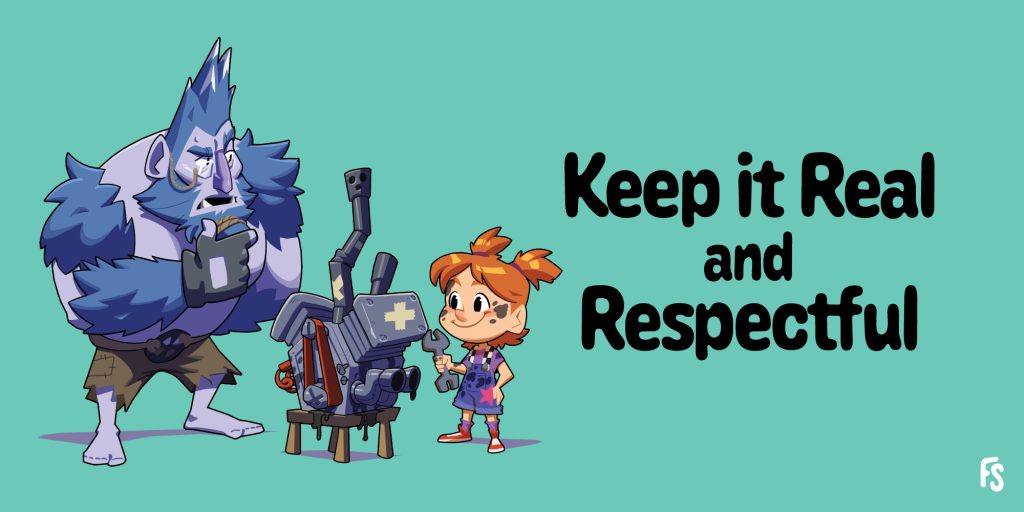
It has always been an integral part of our work culture that we should be able to be ourselves. No matter what your background or identity is, we value each other and treat each other respectfully. This also shows in our employee surveys in a good way. Being respectful was also prevalent in our previous set of values. We however wanted to refresh our focus on a couple of things. To start, being polite does not mean being respectful by itself.
The easily misunderstood part of being respectful in an ambitious culture, such as ours, happens when it’s time to give critique. No one likes to tell others that they’re doing a bad job or even that they could do something just a bit better. But here’s the catch: if we truly respect each other and our level of ambition, the best disservice then is to sugar coat tough feedback, postpone it, or – just let things be. We believe in good intentions amongst ourselves, and so we understand that someone taking the time to help us get better is the ultimate form of respect. No-one is perfect, nor will they ever be, but constant improvement is coming damn close to that.
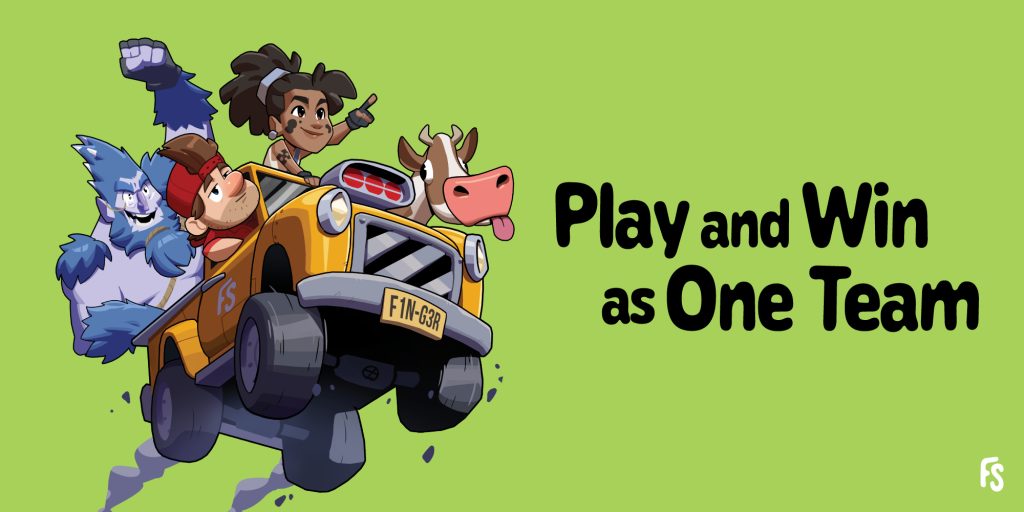
At the time of writing we have a number of teams working on not just games, but many other vital aspects needed to deliver exceptional game content. Everyone has their deadlines – even when they are self imposed. And there is some internal competition between our games, which in a suitable dose is quite healthy. However, we always cheer when our colleagues succeed. We are dreaming of growing our influence and bringing more playfulness to the world, and it is heartwarming to see our teammates step out of their comfy job description to help others succeed. Even though this is not always easy, we will find the time to heave each other to the next level.
Our values may come off as relaying a lot of leadership’s responsibility on our employees, and that is not totally untrue. But even when these values come from within the company, they cannot thrive unless everyone – starting with myself – is committed to living them every day. I am – and I’m convinced we are.
The project to update the values was quite a lengthy one, but I am happy that we did it. We started it by ourselves, but ended up working with a partner to finish the process and it was a lot of help. They made sure that this was something that we can all be proud of, not just a select few. Including both our management and personnel in the process I believe we have all learned a lot along the way, especially about how important they are in shaping how a company works, starting from the day to day interactions.
Going back to BE 2.0, the definition of company vision also includes its core values and beliefs. I had never really understood why it was so until now. Having these clearly defined values helps us hone in on a more clear picture of the future Fingersoft we aim to be – beyond just numbers.